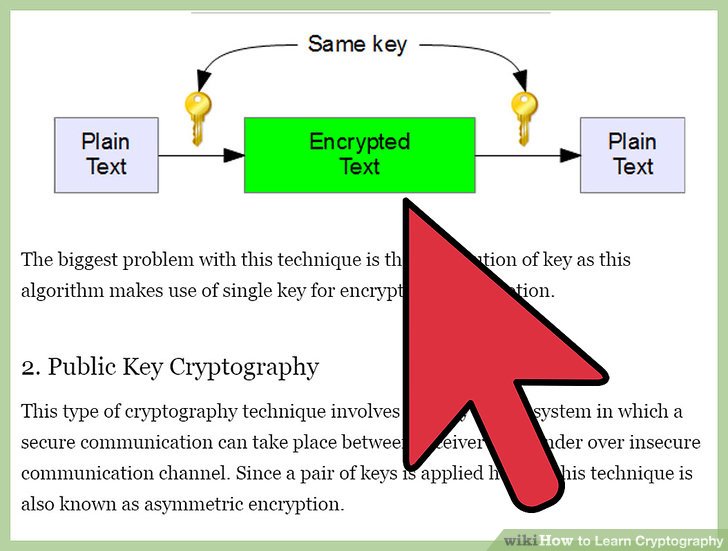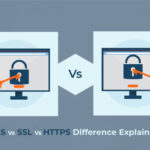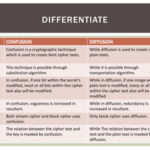Cryptography, the art of encoding and decoding messages to maintain confidentiality and integrity, has captivated minds throughout history. The recent surge in digital communication and data security concerns has cast a spotlight on this fascinating domain, inviting both novices and seasoned technologists to delve deeper. While the technical intricacies can sometimes seem daunting, there are numerous engaging pathways to learn cryptography quickly and effectively. Here, we explore several productive and enjoyable methods to master the essentials of cryptography.
1. Embrace Online Courses and Tutorials
One of the most accessible ways to jump-start your cryptographic journey is through online courses. Platforms such as Coursera, edX, and Udacity offer comprehensive courses ranging from introductory to advanced levels. These courses are often structured to enhance learning through interactive quizzes and real-world projects. Why choose online education? The convenience it offers allows learners to pace their studies, accommodating individual schedules and personal commitments. Moreover, the visual aids and animations provided in these courses can simplify complex theories, making them more digestible and appealing.
For an immersive experience, consider courses that incorporate gamification elements. By translating cryptographic concepts into interactive challenges, these platforms not only expedite learning but also make the process substantially more entertaining. Concepts that may initially seem abstract become tangible as learners unlock levels by solving puzzles and applying algorithms.
2. Dive into Cryptography Books
Books remain a time-honored method of acquiring knowledge, and in the realm of cryptography, a selection of captivating texts can spark interest and enhance understanding. Start with foundational texts like “Cryptography and Network Security” by William Stallings or “Understanding Cryptography” by Christof Paar and Jan Pelzl. These resources provide comprehensive coverage of both theoretical foundations and practical applications.
Opt for books that incorporate historical narratives, anecdotes, or quirky cryptographic puzzles. Not only do they elucidate complex theories, but they also paint a broader picture of how cryptography has evolved. The intertwining of mathematics with historical context can unveil why cryptography has fascinated civilizations from ancient Egypt to modern-day digital security.
3. Hands-On Experimentation with Software Tools
Practical application is essential in solidifying theoretical knowledge. Familiarizing yourself with cryptographic software tools presents an excellent opportunity for hands-on learning. Tools like GnuPG for encryption and decryption, or OpenSSL for cryptographic functionalities can demystify the implementation of various algorithms.
Moreover, engaging in capstone projects or challenges through platforms like GitHub can create a stimulating environment for aspiring cryptographers. For instance, participating in a CTF (Capture The Flag) competition can hone your skills under pressure while collaborating with like-minded individuals. Such competitions often require skills in cryptography, making them ideal for those who relish problem-solving in a competitive atmosphere.
4. Join Cryptography and Cybersecurity Communities
Community engagement offers a plethora of benefits. Attending meetups, workshops, or seminars can foster a sense of belonging while expanding your knowledge base. Websites such as Meetup.com and LinkedIn offer groups focused on cryptography and cybersecurity. Connecting with experts and learners alike generates opportunities for knowledge exchange and mentorship.
Online forums, like those on Reddit or Stack Overflow, are also invaluable. Here, questions can be asked and nuanced discussions can unfold, covering the latest trends, techniques, and theories in the field. Such interactions not only enhance learning but also keep you abreast of current events and innovations in cryptography.
5. Explore Interactive Learning via Games and Puzzles
Learning through play is an effective strategy that adjusts the mindset toward one of exploration rather than obligation. Engaging in games that incorporate cryptographic principles, like “CryptoKitties” or “NETHACK”, can be both enjoyable and educational. These games occasionally require players to solve cryptographic riddles—an excellent way to apply theoretical knowledge in a fun setting.
Puzzles from classic cryptography, like Caesar ciphers or substitution ciphers, can also serve as engaging brain teasers that cement understanding. Additionally, websites that specialize in cipher challenges can provide a constant stream of new problems to solve, enhancing analytical skills while keeping the intrigue alive.
6. Combine Learning with Real-World Applications
The application of cryptographic principles to real-world scenarios greatly enhances engagement. Consider how encryption secures online transactions or how digital signatures verify identity in governmental operations. Research case studies where cryptography plays a critical role in national security or corporate espionage. Understanding the implications provides a compelling backdrop that can motivate learners to grasp complex theories and practices.
Furthermore, volunteering for organizations committed to online privacy can offer practical experience that enriches learning. Whether it’s contributing to open-source projects that enhance privacy software or conducting workshops on best practices in crypto-security, these experiences solidify knowledge through application.
Conclusion
Learning cryptography does not have to be an arduous affair. By embracing online courses, immersing oneself in literature, engaging in hands-on experimentation, connecting in communities, exploring gameplay, and applying knowledge practically, one can navigate the complexities of this field with both speed and enjoyment. The allure of cryptography lies in its multifaceted nature; it’s as much an intellectual pursuit as it is a vital tool in our digital age. Embrace the challenge, and uncover the secrets of encoding and decoding that have fascinated humanity throughout the ages.









Leave a Comment